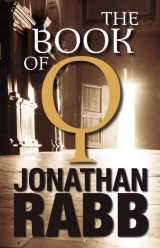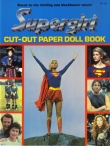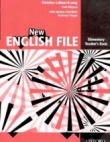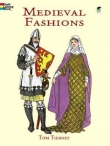
Текст книги "The Book of Q"
Автор книги: Jonathan Rabb
Жанр:
Триллеры
сообщить о нарушении
Текущая страница: 7 (всего у книги 28 страниц)
The small man appeared, a powerful physique in clear evidence as he ran out into the courtyard, stride compact, arms pumping in fluid motion, his chest straining against the confines of his suit. He stopped and began to scan the open space, no indication that he was even mildly winded. For an instant, Pearse thought the man had spotted him, his eyes pausing on the area of shadow now shrouding the priest. But just as quickly, he moved on, locating the arch and bolting toward it at full stride. Pearse held his breath as the sound of footsteps raced past him, no sign that the Austrian had sensed the figure no more than fifteen feet from him. In a matter of seconds, Pearse stood alone.
He was unable to move, certain that at least one more of the security men would appear at any second to drag him away. But the courtyard remained empty.
They weren’t coming.
For a brief moment, he thought about returning to his rooms-the alley, the fire escape-the last place they would look for him. But the Austrian’s words flooded back: A Vatican priest … under our jurisdiction. Again, no choice. No options. He had to get out of the City, easy prey within its walls. Prey?Another piece of absurdity, this one, though, all too real.
He pulled himself from the wall and, still in shadow, moved to the archway, its squat arc amplifying the echo of his footsteps. Beyond it, he came to a second courtyard-this one larger, mercifully empty-a partial view of the museum’s rooftops in the distance. Again, he tried to orient himself. The trouble was, the two exits out of the square led away from the Santa Anna Gate, which, as he now thought about it, might not be such a bad idea. If security meant to keep him within its “jurisdiction,” the guards would have been told to keep an eye out for a collarless priest. Hold him inside. Gates designed to ward off the overly eager tourist now called on to restrain a priest.
More absurdity. He had to find another way out.
Ducking through the closer of the two exits, he emerged to a part of the Vatican where the alleys snake from courtyard to courtyard, clinging to the sides of St. Peter’s and the Sistine Chapel. Somewhere beyond, an expanse of gardens waited-the Governor’s Palace, the Church of Santa Marta, the fountain of the Virgin-until tonight sacrosanct in his mind, now nothing more than a cage. It was an odd sensation, losing touch with the one place in Rome he had always felt most secure, protected. A stiff price to pay for something he still knew so little about.
Seeking out shadows wherever he could, Pearse edged his way along the narrow lanes, choosing what he thought were the most arbitrary routes, hoping in so doing to avoid any further confrontation. He knew that the Austrian would have a small legion at his disposal. It wouldn’t be long before illogic met its match in sheer numbers. Which meant he had to find his means of escape now.
At every turn, though, the outer walls seemed to find him, endless sheets of brick and stone disappearing into a slate sky. No way through, no way over. The thought battered at him as he slipped from one courtyard to the next, alleys spinning him deeper and deeper into the private world of the Vatican, until, with a sudden upsweep of air, he sped out into the grasp of trees, several lamps casting insignificant beams on a carpet of cobblestone. Pausing to catch his breath, he realized he had arrived at the Governor’s Palace gardens, the dome of St. Peter’s hovering above him to his left.
The wide piazza lay deserted, the palace facade a series of icy black windows-four, five stories high-staring back at him. He kept to the grass, relieved to slip under the widening cluster of branches, ears cocked for any sound around him. Silence. No way through, no way over. A deafening mantra.
At the edge of the trees, he stopped again, resting up against a trunk to survey the area. The shadows shifted from a swirl of leaves, his eyes drawn upward to the dome, the cross atop peering out on an unseen Tiber, the world of Rome beyond. Ironic sanctuary, he thought, for one trapped behind these walls. How many, he wondered, had ever viewed it as such-St. Peter’s, its two great arms of colonnades stretching around the square, grasping its faithful to its chest? Its intention to embrace. But also to insulate.
More so than he had ever imagined before.
Just then he noticed an isolated area blanketed in dim light. Unsure, he inched his way out to the edge of the shadow. As he continued to stare, a building came into sight.
The railway station. Of course.
He had completely forgotten about the single line that ran through the Vatican, the tracks some twenty yards beyond the station. Tracing them with his eyes, he watched as the rails disappeared into a tunnel. No way through, no way over.
So what about under?
He had no idea where the tracks led, or even if they remained unguarded farther on; still, they were his best bet, given the alternatives.
Of all the places he might choose for escape, though, the tracks were clearly the most exposed. He’d be out in the open for fifteen, twenty seconds. Again, he checked the area around him. No one. Steeping his lungs with air, he bolted out.
It was maddening to be so vulnerable, darting out in full view from a thousand different angles, the glow from the lamps almost painful to his skin. All he could feel was the utter stillness around him, an almost airless funnel from trees to station. Reaching the platform, he leapt onto the wooden boards that lay at the center of the rails. Everything seemed brighter still, more static, his only choice to duck down, plant his back against the low wall. He all but expected to hear the echo of vigilanzafootsteps bearing down on him.
Nothing.
Another breath, and he propelled himself toward the tunnel, the twenty yards a final naked sprint before he felt the cover of darkness wash over him.
It seemed to go on indefinitely, tracks with narrow platforms on either side disappearing deeper and deeper underground. Still, it was better than what he had just left. He hopped up onto the platform to his left and started in. Twice, he looked over his shoulder, each time the light dipping farther from sight. On the third try, it vanished altogether. Only then did he notice the blue fluorescent lights evenly spaced along the wall. Dim to the point of futility, they seemed to grow brighter as his eyes became more accustomed to the dark. All the while, he tried to picture his whereabouts above ground, unsure if he had yet moved beyond the Vatican walls.
His answer came far quicker than he expected. No more than five feet from it, he began to make out what looked to be an immense door rising from track to roof, sealing the tunnel behind. No wonder there had been no guard at the station: Who could possibly find their way through this? Drawing up to within half a foot of the thing, Pearse confirmed his first impressions. Solid steel, all the way up.
Hoping to find a smaller door within, he began to glide his hands across it. Nothing. Undaunted, he dropped to the tracks and did the same with the door as a whole. Again nothing. He hoisted himself up onto the second platform and began to probe in the dark, when his elbow suddenly knocked against something jutting from the wall. Within seconds, he had the object, a piece of iron-as best as he could tell-rectangular, perhaps two inches thick, ten inches across. A few inches above, he found another, then another, all at regular intervals.
Rungs of a ladder. A minor miracle.
Ten or eleven up, he suddenly became aware of a landing no more than three feet above him, wrought iron, much like a fire escape’s balcony. Continuing to climb, he grabbed ahold of its side and swung his legs over.
The perch lay open except for a glassed-in booth, large enough for perhaps two men, no doubt the operations room for the immense door. Stepping toward it, Pearse pressed his face against the glass-at least three inches thick-and discovered a console at the far end, buttons glowing in an amber hue, enough to reflect an inside door handle halfway down the wall. But no outside handle. Instead, a large metal box protruded from the glass. Fixed to its side was a long rectangular bar extending out toward the steel door.
Pearse dropped to his knees and began to fiddle with the box. It was totally unmanageable, even with a keyhole at the center. The bar, however, seemed strangely familiar. He ran his fingers along it, its texture that of a license plate, thin metal with raised lettering across it. He began to trace the letters, piecing together the text, SICUREZZAthe first word to make itself known.
Within a few minutes, he had the entire message: TO BE USED ONLY IN THE EVENT OF A TRACK FIRE. An emergency exit, the warning of an alarm bell should the bar be pushed to open the door.
He could hardly contain his smile; modern technology had come to the Vatican.
At first, it seemed odd that this small lever was all that stood between him and his freedom. As he thought about it, though, he realized it was odder still that anyone should need to go to such lengths to leave the Vatican. Security throughout the City was minimal, because its sole purpose was to keep people out, not in. Another reason why the station had been deserted.
Why should it be any different here?
The thought was only moderately reassuring. With an alarm blaring, he knew everything would accelerate; the men from security would find their way inside the tunnel within seconds, still more of them to the spot where the mysterious escape route would deposit him. Inside the walls? Beyond them? He didn’t know. Questions flooded his mind as he stood, his grip tightening on the bar. One last glance along the tunnel.
He pushed through.
The sound was deafening, but no more intrusive than the eruption of light that poured down at him from every direction. He stood in the middle of the cabin, his eyes adjusting as he tried to locate a second door. There. Just to the right of the console. Again, no handle, only box and bar. Without hesitation, he pushed through, this time arriving in a brightly lit corridor, narrow walls painted white, the ceiling lined with pipes less than three inches from his head. Processed air permeated the place, antiseptic, leaving a metallic taste in his mouth as he sped off.
It was impossible to concentrate on anything except the movement of his legs, the relentless sound of the blaring behind him, deeper and deeper, until, with a sudden choked cough, the Klaxon stopped. Its abrupt cessation felt like a blow to his gut. Still he ran, straining for the sound of steps, voices, anything behind him, his ears incapable of such focus-only the echo of his own feet on the bare cement floor.
Half-expecting to see a figure careering toward him-trapping him among those who were by now within the tunnel-Pearse noticed the pipes take a sharp turn to the left some thirty yards in front of him. Slowing, he managed the corner, at once barreling through yet one more door, his feet suddenly taken out from under him, his body wild as he slipped off a cement ledge, only to come crashing down onto a narrow strip of grass.
Everything seemed to stop. He lay prone on his back, completely disoriented.
Stars.
He was gazing up at stars. Outside. Glancing back, he watched as the door slammed shut, from this side, a rusted metal postern-no handle, no lock-nestled within the Vatican wall, a few scrawls of graffiti decorating its weathered facade. Otherwise, it remained completely nondescript. He spun around and propped himself on an elbow. A wide road-his best guess the Viale Vaticano-stood no more than ten feet from him. The pain in his back notwithstanding, Pearse felt an overpowering sense of exuberance, a nervous laugh erupting in his throat. He turned once again to the wall and stood. St. Peter’s loomed directly beyond it.
Under our jurisdiction.
For several moments, he simply stared.
Not anymore.
The sound of a siren somewhere off to his left told him he had no time for victory celebrations. They would be coming, this only a momentary reprieve. Slipping into a web of pedestrian lanes across the road, he came face-to-face with a far more unwelcome truth: The Vatican was no longer his, its refuge lost.
What victory in that?
Pearse had stopped running twenty minutes earlier, the furtive looks over his shoulder perhaps ten minutes after that. Since then, he’d caught himself letting up only once or twice, allowing the easy rhythm of a resolute pace to take his mind off of the last few hours. Those moments had passed quickly, a muted anxiety resurfacing to keep him alert. He’d thought about a hotel-the late hour notwithstanding-but realized a credit card could be traced. That the idea had even entered his mind stunned him. Angeli, of course, was out of the question-at least for the time being. Best to keep her isolated.
He’d crossed the river at the Aosta Bridge, opting for the Via Giulia, the summer lamps billowing against the high walls as he moved past the shops. One or two couples walked arm in arm along the lane, too few, though, to put him at ease; somewhere in the back of his mind, he knew he needed to find a more populated area.
He headed up through the Campo dei Fiori, passing by a favorite restaurant on the northeast corner, dark for the night, a momentary taste of Gorgonzola on his tongue. He’d eaten there two, three nights ago, a few friends from the library, now strangely foreign, a connection severed by the last eight hours.
For forty minutes, he walked, careful to keep himself situated within large groups-Piazza Navona, the Trevi Fountain, up to the Spanish Steps-the crowds growing younger and younger along the improvised route. Packs of students littered the steps and fountain, some camped around a single guitar strummed in adolescent serenade, others happy to gaze out at the spectacle of Roman summer. Still more couples wandered, while a few well-soused tourists snapped flashed shots of the bell towers looming above, pictures destined for blackened obscurity.
The refuge he sought, however, remained distant. Instead, he felt his own detachment like a spyglass tracing his every move, caught in the lens, all else a blur. Whatever sanctuary he had conjured beyond the Vatican walls during his flight quickly dissolved into a heightened sense of isolation, magnified against the backdrop of late-night revelry. The city itself seemed to goad him, his every turn met with an increasing sense of loss, even disorientation, all that was familiar somehow taken from him.
Even in the Piazza Barberini-its sudden collision of streets alive with cabs and cars-he felt as if he’d never seen the place before, everything starker, colder to the eye.
He was about to move on when he suddenly realized why he had come this way. Of course there was another refuge for him in the city. Of course there was a place where he could make sense of the last twelve hours. John J.’s. Just north of the Giardini del Quirinale. The priest’s apartment. He couldn’t believe it had taken him this long to think of it. Granted, he hadn’t been there more than three or four times in the last two years-Blaney was always jetting back and forth to the States-but long periods without contact had never altered their relationship. Given what Pearse had been through tonight, he knew a two A.M. knock at the door wouldn’t raise so much as an eyebrow, no matter how much in need of a good clipping it might be.
With renewed purpose, he made his way back the few blocks to Via Avigonesi, number 31, indistinguishable from every other building along the narrow street, endless walls of chipped russet stone visible in the shadowed lamplight. Pearse scanned the front windows, hoping on the off chance to see a light somewhere on the fifth floor. No such luck. He stepped to the door and rang the bell.
On the sixth ring, he again stepped back into the empty street and saw a light come on up above. A moment later, the crackle from an ancient intercom filled the air.
“Si?”barked a woman’s voice. “Sa che ore sono?”
“Yes, it’s late. … I’m sorry,” Pearse answered in Italian, “but I need to see Father Blaney.”
“At this hour? Who is this?”
“Father Pearse. Father Ian Pearse from the Vatican. I’m sure he’ll understand.”
“Father …”
Pearse waited.
“The American?” Her tone was far less strident.
“Yes.”
“I see.” Another pause. “Well, Father, I’m sure he would, but he’s not here. He’s away for another few days. Is there something I can do for you … at two in the morning?”
The possibility hadn’t even crossed his mind. “Not here?”
“I’m sorry, no. Was he expecting you?”
Pearse needed a few moments to respond.
“No. No, he wasn’t.”
“Well, he does call in from time to time. Shall I give him a message?”
“No … no. That’s okay.”
“You’re sure, Father?” She waited. “Would you … like to come up? You’re quite sure everything is all right?”
Another long moment. “Good night.”
“Father …”
The voice trailed off as Pearse stepped away from the doorway, his sense of isolation now even more intense. The prospect of seeing Blaney had allowed him to drop his guard. Another few days. Pearse didn’t have that kind of time.
Not sure where he was meant to go, he began to walk-back to the piazza, to the cabs, the lights, up along the Via Barberini-the city again cold and unforgiving. Why he felt the need for forgiveness, though, he didn’t know.
It was only as he reached the top of the Barberini hill that he understood. There, across from the wide avenue, and tucked in at the end of a tiny cobbled piazza, waited the church of San Bernardo. It had always been a favorite of his, in appearance like a half-pint Pantheon, modest dome atop stocky walls-the troll on the hill-far less prepossessing than its more famous neighbors. It might have lacked the regal facade of Santa Susanna, or the Bernini treasure of Santa Maria della Vittoria, but Bernardo always managed its own quiet dignity, an almost medieval piety in its inelegance. More than that, its simplicity reminded him that, amid all the confusion, one thing remained constant and his own. Nothing so intangible as faith-although he knew he could find strength in that-but the far more patterned expression of prayer. What had Blaney always said? Sanctuary in the mantra of repetition. Another kind of refuge.
Why forgiveness? Because he had taken no time for it today, no time for the Mass he had abandoned, no time to quiet his mind. He slipped across the road, down along the uneven cobblestones, and through the door into the vaulted church.
Inside, the light was spare, enough to cast angular shadows from the statues of saints who filled the raised niches along the circular wall. Hard plaster faces stared down at him, cheeks and hands chipped here and there, pleated robes too rigid at the edges, the caress of Bernini nowhere in evidence on the austere figures. Yet all he felt was their serenity. He dipped his hand into the holy water, crossed himself, and moved to the wooden benches that stood in front of the altar. Sitting, he let the strain of the last ten hours seep from his muscles, a sudden sense of exhaustion overwhelming him. On the verge of sleep, he allowed his head to slip back.
Caught in that honeyed mist between conscious and unconscious, he found himself drifting. For little more than an instant, Slitna, Prjac, the countless other towns he had long ago forgotten, all seemed to rise up in wild assault around him-sounds, smells, tastes, nothing distinct, all of it trapped in dissonant haze, yet so palpable, it forced him to bolt upright, its grasp almost too much.
His heart was racing, his mind lost to an endless array of sensations. One, however, stood out as he tried to reclaim focus. A quiet resolve, strangely familiar, an echo from his days with Petra. Even then, he had understood it as an imperfect reflection of hers, a naive courage that had all too often bordered on the reckless. Still, it had kept him alive on more than one occasion. Now, as he stared at the grained wood of the pew in front of him, Pearse allowed it to wash over him, resonate within. A moment with her. There might have been more to it than that, but he let it pass.
It wasn’t difficult to understand why it had come to the surface now; he only hoped he could sustain it.
Lips moving silently, he began to pray.
Cardinal von Neurath held the large velvet drape back, his gaze drawn to the lights of Rome as they spread out in front of him. Half past four, still so alive. How many times, he wondered, had he allowed himself to stand in robe and slippers, peering out, the chill from the hour and the lure of sleep both forgotten? Too many to recall. The endless twists and turns of streets disappeared into the labyrinth of the city, landmarks dotting the landscape to give his meditation some bearing-the ivory cream of the Colosseum, the garish white of Il Vittoriano, and always the silent dome, crisp against a blackened sky, beckoning him, calling him. Only him. Perhaps tonight.
The sound of a taxi broke through, fatigue and chill suddenly more intrusive. Still he stared. Rome. It was almost too much to pull himself away.
“Why don’t you get some sleep.” Blaney sat in an armchair at the far corner of the large bedroom, lamp at his side, legs extending to a cushioned footstool. “I can wake you if any news comes in.”
Von Neurath continued to stare out. “No, this is fine.” After a few moments, he turned. “If you want to get some-” The shake of the head across the room told him there was no reason to finish the thought. They had known each other for the better part of forty years, tied together by what had once been so clear a path. In fact, it had been Blaney who had administered von Neurath’s Rite of Illumination all those years ago. All so clear.
Things change. The priest, so devoted to his Manichaean faith, had never wanted more, content to be a spiritual beacon. Keep the teachings of Mani pure. Keep the Word alive. Blaney had always believed that the Word itself was all they needed to bring about the one true and holy church.
Von Neurath had recognized the weakness early on. Faith and teaching could take one only so far. There had to be a practical side to Mani’s vision. And the more that pragmatism had asserted itself, the more Blaney had kept his blinders on, an attitude that made him appear all the more pathetic in von Neurath’s eyes.
A relationship built on mutual mistrust. It was why they would both wait up for the call.
Von Neurath moved back to the bed and sat. “Any confirmation from Arturo on the transfers?” he asked, more to pass the time than anything else.
“About an hour ago,” answered Blaney. “Our Pentecostal, Baptist, and Methodist friends were all very appreciative.”
“I don’t care how much they appreciate it,” replied von Neurath, scratching away at a small stain on the bedspread. “I want to know that they understand what it’s for.” He brushed a few crumbs away and looked over at Blaney. “I can’t start consolidating the fold without grassroots support.”
“I’m sure they’re getting the message out, Erich.”
A quizzical look crossed von Neurath’s face before he turned to the stain again. “‘Message’? That’s a rather precious way of putting it, don’t you think?”
“Perhaps. It’s what you would call the ‘soft sell,’ I think.”
Von Neurath laughed to himself; it seemed to catch Blaney by surprise. “I didn’t realize you were so good at it.”
“Hardly.”
“Oh, don’t underestimate yourself, John.”
“No, I’ll leave that to you.”
Von Neurath looked up from the stain. “Have I struck a nerve?”
Blaney said nothing.
Again, von Neurath waited. “You’ve really grown to dislike me, haven’t you?”
“Not at all.”
“Don’t tell me that you’re disappointed?”
“Disappointment implies expectation.”
A smile. “Touche.”
“We see things differently,” said Blaney.
“Yes, we do. I know the message isn’t enough. One has to be certain that they understand it.”
“Well, then, I’m sure you have the people in place for that.”
“ We, John. Wehave the people in place.” He began to scrape away again. “Painting the world in black and white isn’t that easy with all those other colors out there. One pure church won’t just suddenly appear because you hope it will. You have to lead them to it. And the only way to do that is-”
“To manipulate them?” said Blaney.
Von Neurath didn’t bother to look up. “A little crude, but, yes, that sounds about right.”
Blaney nodded to himself. “‘And when the light descends, and the darkness recedes, who shall be worthy of the mystery that has been hidden since eternities?’”
“‘He who can make the world whole,’” answered von Neurath. “Epistle of Seth.”
“I don’t recall all that much about ‘manipulation’ in the epistle.”
Von Neurath now looked up. “And what would you propose? Unless we have a willing constituency among our Protestant friends, no amount of papal encyclicals will make anything whole again, infallibility or not. The olive branch goes only so far.”
“If, in fact, you’re the one holding it,” reminded Blaney.
“I don’t think that will be much of a problem.” The cardinal turned back to the bedspread, the stain clearly getting the better of him. “Sometimes the Word isn’t sufficient to motivate people to action.”
“I’m not sure Mani would agree with you.”
“Mani wasn’t dealing with such a complicated world.”
“Oh, yes, I forgot. Poor, naive little Mani.”
Again, von Neurath laughed. “Sarcasm doesn’t really suit you, John. You’re much better when self-effacing. I’d stick with that.” Von Neurath stood, stepped to a small washbasin on a nearby table, and began to dip a washcloth in the water. Wringing it out, he returned to the bed and went back to work on the stain. “Nobody’s quite sure who or what the agents of darkness are nowadays. Too many would-be demons to choose from. If I can simplify that-”
“If we, Erich. We.”
Von Neurath waited before continuing. “If we can simplify that, all the better. One clear threat. One ultimate demon to send them back into the arms of the true church.”
“Even if that demon doesn’t exist?”
A wry smile crossed his lips. “The last I checked, Islamic fundamentalism was alive and well.”
“Playing on people’s irrational fears isn’t what Mani had in mind.”
“We’ve been through this. And it’s a little late to be questioning the method.”
“I’m not questioning it. I’m simply interpreting its emphasis.”
“Nothing brings people together like ignorance, John.” Von Neurath seemed satisfied with his work and tossed the cloth back onto the table.
Now Blaney waited before answering. “‘And nothing but ignorance can make the light-’”
“‘Wither and die.’ Yes. I know the verse. Shahpuhrakan, three-five. You might also recall Book of Giants, chapter six: ‘And through the darkness He will conceive a light so worthy that it will say-I am born of the darkness, and yet I am the light itself!’ Ignorance bearing wisdom. Not much to interpret there. Whether these fundamentalists actually pose a threat or not-whether Mr. Bin Laden and his ilk have more in mind for us than just some senseless bombings-we both know we can use their presence to create a genuine unity. Fear of a common enemy is a powerful incentive. We simply have to make sure that that incentive is strong enough. From there, it’s a small step to the true church. Then you’ll see the power of the Word.” He paused. “If that isn’t light born of darkness, I don’t know what is.”
“It all depends on how you use that enemy.”
“Yes. Yes, it does. I wasn’t aware you were so interested in the more mundane workings of all of this.” He waited for a response. “No, I didn’t think so.” He stood and returned to the window. “Keep the faith pure, John. That’s what you’ve always been so good at. All to make the church whole again.” He waited. “Sometimes I wonder what you think that really means.”
“Light set free. Triumph over darkness. It’s not all that complex, Erich. ‘The vain garment of this flesh put off, safe and pure; the clean feet of my soul free to trample confidently upon it.’”
Again, von Neurath laughed to himself. “Abstractions are so easy, aren’t they? Especially when you can hide behind them.”
“And what does that mean?”
Again von Neurath waited. “We make the church whole, John, and it’s ourturn to build from the ashes. Our turn to set doctrine, tend a flock, not just quote from a psalmbook. We’re not exactly a feel-good bunch, now are we?”
Blaney said nothing.
“Two, three hundred elect among us? The rest, told to obey for a life of perfect asceticism? That requires a good deal of control. Limitations. How many of them, do you think, will be that keen to let their ‘souls trample on the world of the flesh’? We’ll have to take a lot of things away from them so that they can see how the Light can be set free. The triumph over darkness demands a great deal of discipline, a healthy dose of … reeducation. Not everyone’s going to understand what we’re doing for them.” Again, von Neurath waited. “So don’t tell me you’re uncomfortable with how we’ll be dealing with our enemies, real or not. You know as well as I do that it pales in comparison to what we have in store for our own followers. That kind of ascetic ideal requires sacrifice. And we don’t have the luxury to pick and choose which ones we make.”
Neither said a word for nearly a minute. Blaney stared at the phone, willing it to ring. Von Neurath suddenly turned to him. “It’s defense, isn’t it?”
“What?” asked Blaney.
“Defense,” he repeated. “‘Satisfied slave turns up in armor.’”
It took Blaney a few seconds to realize what he was saying. “Oh … Yes.” He now recalled the cryptic he’d given him earlier in the day. The word game they’d been playing for years, like all good Manichaeans. The mysteries hidden within language. There might have been a great deal of mistrust and disrespect in their relationship, but at least they had the cryptics to keep them on common ground. “That didn’t take long.”
“ Satisfied, fed. Slave, esne. Turn them upside down,” said von Neurath, “and you get defense, armor. Clever.” Perfunctory praise.








